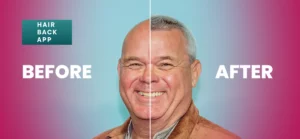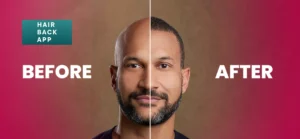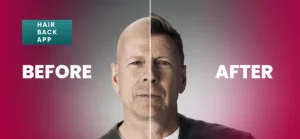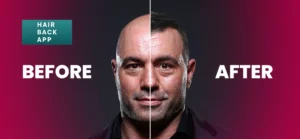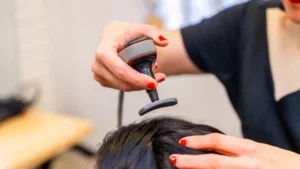Introduction: The Rise of the Hair Transplant for Long Hair
In a world where beauty standards constantly evolve, long, luscious locks have remained a timeless symbol of femininity and allure. However, for many women, achieving the dream of flowing, Rapunzel-like hair isn’t always as straightforward as it seems.
Factors such as genetics, hormonal changes, and health conditions can contribute to hair loss, leaving women grappling with a loss of confidence and self-esteem.
Fortunately, the realm of hair restoration has advanced significantly, and a female hair transplant for long hair is an accessible solution.
Understanding Female Hair Loss: Why do Women Seek a Hair Transplant for Long Hair?
To truly understand the significance of a hair transplant for long hair in women, it’s crucial to delve into the complex issue of female hair loss. Unlike the more conspicuous male pattern baldness, which tends to manifest as receding hairlines and prominent bald spots, female hair loss is a nuanced phenomenon characterized by diffuse thinning across the scalp.
1. Hormonal Changes: Hormones play a pivotal role in regulating hair growth, and fluctuations in hormonal levels can trigger hair loss in women. Events such as pregnancy, childbirth, menopause, and even conditions like polycystic ovary syndrome (PCOS) can lead to hormonal imbalances that adversely affect the hair growth cycle.The hormonal shifts may disrupt the normal pattern of hair growth, pushing more follicles into the resting phase and causing increased shedding.
2. Genetics: While genetic factors are a significant contributor to male pattern baldness, they also play a role in female hair loss. Women with a family history of hair thinning or pattern baldness may be genetically predisposed to experiencing similar issues.Understanding one’s genetic background is crucial in assessing the risk of hair loss and tailoring effective interventions.
3. Stress: The modern lifestyle’s demands often subject women to high levels of stress, which can contribute to hair loss.
Chronic stress can disrupt the hair growth cycle, leading to a condition known as telogen effluvium, where a large number of hair follicles enter the resting phase simultaneously, causing noticeable shedding.Managing stress through relaxation techniques, adequate sleep, and a balanced lifestyle can positively impact hair health.
4. Nutritional Deficiencies: Proper nutrition is fundamental to overall health, including the health of hair. Deficiencies in essential vitamins and minerals, such as iron, zinc, biotin, and vitamin D, can compromise the strength and vitality of hair follicles.Ensuring a well-balanced diet and, when necessary, incorporating supplements can address nutritional deficiencies and support healthy hair growth.
5. Medical Conditions: Certain medical conditions can contribute to hair loss in women. Conditions such as thyroid disorders, autoimmune diseases, and chronic illnesses may impact the hair growth cycle. Managing these underlying health issues is crucial in addressing hair loss comprehensively.

Recognizing the multifaceted nature of female hair loss allows for a more targeted and personalized approach to interventions.
Female hair transplants for long hair are not merely cosmetic procedures; they are transformative solutions addressing the complex interplay of genetics, hormones, lifestyle, and overall health.
As the understanding of these factors deepens, so does the efficacy of interventions, offering hope and confidence to women navigating the challenging landscape of hair loss.
The Emotional Toll of Hair Loss: One More Reason to Choose a Hair Transplant for Long Hair
Hair loss is a deeply personal experience that extends far beyond the physical realm, delving into the complex and often tumultuous landscape of emotions.
For women, the emotional toll of losing one’s hair can be nothing short of devastating, as it weaves its way into the very fabric of self-esteem, body image, and overall quality of life, which is why more and more women turn to a hair transplant for long hair:
1. Impact on Self-Esteem: A lush mane of hair has long been associated with youth, vitality, and beauty, forming a crucial element of a woman’s self-perception. As each strand falls, so too may the layers of self-esteem.Women experiencing hair loss often grapple with feelings of diminished attractiveness and a sense of loss tied to their identity. The visible changes can lead to a profound internal struggle, eroding the confidence that was once synonymous with a full head of hair.
2. Body Image Distortion: Society’s relentless pursuit of an idealized image of femininity places immense pressure on women to conform to specific beauty standards. Hair, as a symbol of femininity and allure, becomes a focal point for societal expectations.The loss of hair can distort a woman’s perception of her own body image, amplifying feelings of inadequacy and triggering a sense of being at odds with conventional notions of beauty.
3. Impact on Quality of Life: The emotional ramifications of hair loss extend beyond the mirror, permeating various aspects of a woman’s life. Everyday activities that were once routine may become sources of anxiety, from simple tasks like styling hair to more profound moments like social interactions.Women may find themselves withdrawing from social engagements, workplace interactions, and even intimate relationships, fearing judgment and scrutiny.
4. Societal Pressures: Society’s unrealistic beauty standards, perpetuated by media, advertising, and social media, can intensify the emotional toll of hair loss.
The pressure to conform to a particular image of femininity can be overwhelming, leading women to seek solutions not only for personal satisfaction but also to align with external expectations.This societal pressure can create a cycle of self-doubt, further fueling the desire to restore one’s hair to meet perceived societal norms.

In response to the emotional upheaval caused by hair loss, many women embark on a journey to reclaim not just their hair but also their sense of self.
The quest for effective solutions, such as a hair transplant for long hair, is rooted not only in a desire for physical restoration but also in a profound need for emotional healing.
It is essential to recognize that the impact of hair loss on a woman’s emotional well-being is a legitimate and significant aspect of the overall human experience. As conversations around beauty standards evolve, fostering a culture of acceptance and diverse definitions of femininity becomes imperative.
A hair transplant for long hair, as a transformative solution, contributes to this narrative by empowering women to redefine their beauty on their terms, ultimately restoring not just their strands but also the resilience and confidence that define their true essence.
The Evolution of the Hair Transplant for Long Hair and Why To Get One
Hair transplants, once exclusively associated with addressing male-pattern baldness, have undergone a remarkable evolution to cater to the unique needs and aesthetic desires of women.
This transformation is not merely a technical adaptation but a cultural shift, recognizing that women, like men, experience the emotional and psychological impact of hair loss.
The hair transplant for long hair has emerged as a groundbreaking solution, breaking away from the traditional narrative and embracing the diverse patterns of female hair loss.
1. Understanding Female Hair Loss Patterns: Unlike the distinct patterns seen in male-pattern baldness, female hair loss tends to manifest as diffuse thinning across the scalp. Recognizing this fundamental difference is essential in devising effective solutions tailored to the specific needs of women.Hair transplant procedures for women are designed to address this diffuse thinning, focusing on restoring density and thickness across the entire scalp rather than targeting specific receding hairlines or bald patches.
2. Desire for Longer, Voluminous Hair: The cultural association of long, luscious locks with femininity and beauty has influenced the evolution of female hair transplants. While men may opt for a more conservative approach to address balding, women often seek solutions that not only restore density but also fulfill the desire for longer and voluminous hair.This nuanced approach considers the aesthetic preferences unique to women, aiming not just to restore what’s lost but to enhance and elevate their natural beauty.
3. Precision and Meticulous Techniques: The success of a hair transplant for long hair lies in the precision and meticulous techniques employed by skilled surgeons. Unlike male hair transplants, where the focus may be on creating a natural-looking hairline, the challenge for female hair transplants lies in seamlessly integrating transplanted hair with the existing strands.Surgeons must consider the direction, angle, and density of hair growth to ensure a cohesive and natural result, preserving the frontal hairline that women typically retain.
4. Minimally Invasive Procedures: Advancements in technology and surgical techniques have paved the way for minimally invasive procedures when it comes to a hair transplant for long hair.These techniques reduce scarring and downtime, allowing women to resume their regular activities more quickly. The evolution of these procedures reflects a commitment to not only achieving optimal aesthetic outcomes but also prioritizing the patient’s comfort and convenience.
5. Holistic Approach to Female Hair Restoration: A hair transplant for long hair goes beyond addressing the physical aspect of hair loss; they adopt a holistic approach that considers the emotional and psychological well-being of women.Recognizing the multifaceted impact of hair loss on women’s self-esteem, body image, and quality of life, modern hair restoration practices prioritize comprehensive solutions that address the root causes while providing transformative results.

In essence, the evolution of hair transplants for women signifies a departure from traditional gender norms in the field of hair restoration.
It acknowledges that women, like men, deserve tailored solutions that not only address the physical aspects of hair loss but also recognize and respond to the emotional complexities involved.
As the field continues to progress, the narrative around the hair transplant for long hair expands, empowering women to embrace their unique beauty and redefine their standards of femininity on their terms.
The Procedure: What to Expect
A female hair transplant for long hair involves the transfer of healthy hair follicles from a donor area – typically the back or sides of the head – to the areas experiencing thinning or balding. The procedure is carried out under local anesthesia, ensuring minimal discomfort for the patient.
With advancements in technology and techniques, surgeons can now perform precise and minimally invasive procedures that leave no visible scarring. One of the key considerations for women opting for a hair transplant for long hair is the preservation of the existing hair.
Unlike men, women often retain their frontal hairline, making it crucial to integrate transplanted hair seamlessly with the existing strands. Skilled surgeons use meticulous techniques to ensure a natural-looking result, considering the direction, angle, and density of hair growth.
Post-Transplant Care and Recovery
Recovery from a female hair transplant for long hair is generally well-tolerated, with most patients able to resume their normal activities within a few days. Following the procedure of hair transplant for long hair, patients are provided with specific post-transplant care instructions, including guidelines for washing, styling, and protecting the newly transplanted hair.
It’s important to note that while the transplanted hair follicles will shed initially, new hair growth will gradually emerge over the following months. Patience is key, as the final results may take several months to become fully apparent. However, the transformative impact on a woman’s confidence and self-esteem can be immediate and profound.

The Psychological Impact of the Hair Transplant for Long Hair
Beyond the physical restoration of hair, the psychological benefits of a female hair transplant for long hair are remarkable.
Many women report a significant boost in self-confidence and an improved sense of well-being after the procedure. The ability to style and enjoy long, luxurious hair can have a profound impact on a woman’s perception of herself, positively influencing her social and professional interactions.
Breaking the Stigma
While the stigma surrounding hair transplants has diminished over the years, there remains a misconception that the procedure is predominantly for men. The rise of female hair transplants, especially those tailored for long hair, is challenging these stereotypes. Women are increasingly embracing the opportunity to take control of their appearance and redefine their beauty standards.
Choosing the Right Surgeon
Selecting a qualified and experienced surgeon is paramount to the success of a female hair transplant for long hair. A skilled surgeon will consider the unique aspects of female hair loss, create a personalized treatment plan, and ensure natural-looking results.
Potential candidates should thoroughly research and consult with surgeons who specialize in female hair restoration.
Conclusion
In the pursuit of beauty and confidence, women are no longer limited by the constraints of genetics or societal expectations. The emergence of the long hair female hair transplant represents a groundbreaking solution for those grappling with hair loss, offering a path to reclaiming the thick, voluminous locks that are synonymous with femininity.
As technology continues to advance, the future of female hair restoration looks promising, providing women with increasingly effective and natural-looking solutions to achieve the hair of their dreams.
Ultimately, the transformative power of a hair transplant for long hair extends far beyond aesthetics, empowering women to embrace their unique beauty and confidently navigate the world with a newfound sense of self-assurance.


